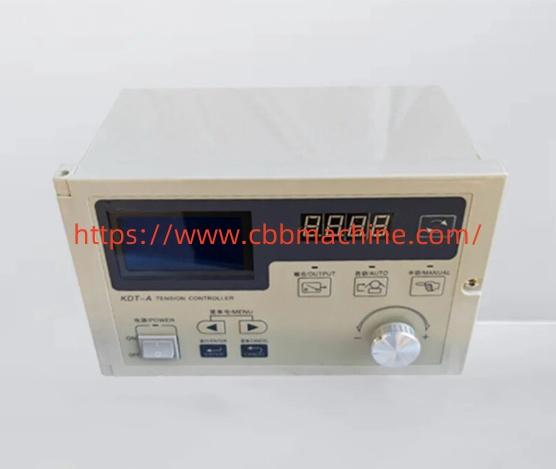Tension Controller plays a crucial role in modern industrial processes, ensuring consistent tension across materials during production. This device is particularly valuable in sectors such as paper, textiles, film, and packaging, where uneven tension can lead to defects, machine stoppages, and increased waste. By stabilizing material flow, it supports smoother operations and higher-quality outcomes.
One of the main advantages of this equipment is its adaptability. It can accommodate varying material thicknesses, widths, and types without the need for complex adjustments. This flexibility allows operators to switch production runs efficiently, reducing the potential for errors and saving time. With stable material handling, manufacturing processes run more reliably and predictably.
Durability is another key factor. Built from high-quality materials, the unit withstands continuous use in demanding industrial environments. Regular inspections, alignment checks, and sensor calibration further enhance its reliability. Maintaining consistent operation minimizes unexpected downtime, improves productivity, and reduces overall operational costs.
Safety is also enhanced through precise tension regulation. In high-speed production, inconsistent material movement can result in slippage, breakage, or equipment damage, posing hazards to workers. With proper tension management, the risk of accidents is significantly reduced, contributing to a safer workplace and compliance with industrial safety standards.
In addition, efficient tension handling contributes to resource conservation. Misaligned or stretched materials often become scrap, leading to higher costs and waste. By keeping tension uniform, manufacturers can optimize material usage, lower waste rates, and support environmentally responsible practices.
Choosing the right tension management solution requires assessing production needs, including material types, machine speed, and environmental conditions. A reliable system ensures operational efficiency, consistent product quality, and minimal disruptions while being simple to operate and maintain.
Overall, incorporating this technology into production lines provides tangible benefits: improved product quality, safer operations, lower waste, and better efficiency. Companies adopting such solutions can expect smoother workflows, cost savings, and enhanced output reliability.
For more information, visit https://www.cbbmachine.com/news/industry-news/tension-controller-types-importance-applications-and-more.html
